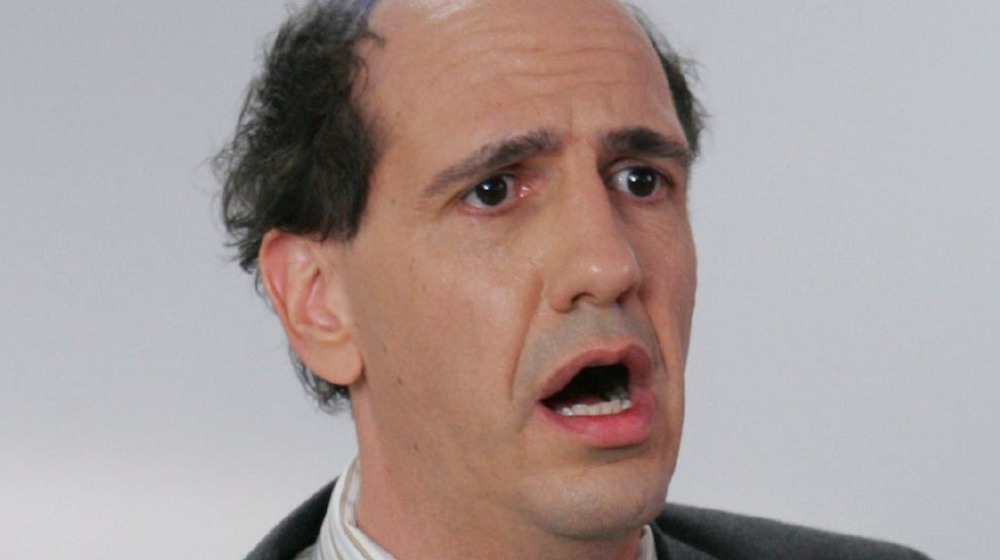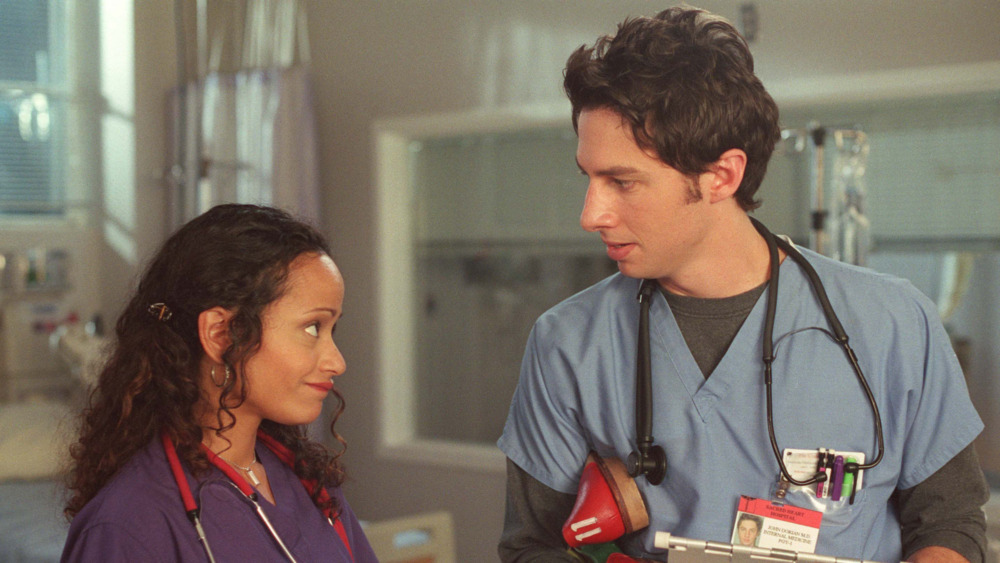What Scrubs Got Wrong About Patients
Among experts, Scrubs is widely considered one of the most "authentic" medical shows. This is largely thanks to the team of IRL doctors that worked as consultants on each episode, providing the show a healthy dose of realistic medical scenarios and jargon. The show also manages to capture the emotional reality for medical professionals startlingly well, as one doctor told Insider – particularly the way that doctors use humor to "keep their sanity [in] tough situations."
That irreverent and sometimes-satirical comedy would often take things to the level of hyperbole, of course, like when Dr. Cox (John C. McGinley) responds to J.D.'s (Zach Braff) question about dosage for a patient: "It's regular strength Tylenol," he says. "Here's what you do. Get her to open her mouth, take a handful and throw it at her. Whatever sticks, that's the correct dosage."
While medical experts may believe Scrubs gets most things right when it comes to representing the trials and tribulations of the average hospital, the show missed the mark on one very important detail regarding patients. Here's what Scrubs got wrong.
Doctors on Scrubs are initially told to keep medical mistakes from patients
In the first episode of Scrubs, J.D. and Turk (Donald Faison) attend an orientation for new interns, which turns out to be more of a lesson in preventing lawsuits. The talk includes an impassioned speech from the endearingly anxious in-house lawyer, Ted (Sam Lloyd), who advises patients to be selective about the information they share with patients.
"If there is a mistake, don't admit it to the patient," he explains. "Of course if the patient is deceased, and you're sure, you can feel free to tell him or her ... anything." While Ted's desire to keep medical malpractice lawsuits at bay is understandable, this policy actually goes against common practice in hospitals today, which is to tell patients when you've made an error.
Scrubs is not completely off-base, historically speaking. Doctors in the past did tend to keep their mistakes from patients. According to American Academy of Pediatrics News, "Earlier generations of physicians often adopted a 'deny or defend' approach when medical errors occurred. Thus, physicians might avoid discussing the situation with the patient or family unless a concern was raised." More recently, this tactic has been criticized for not being patient-centric and, according to a study published in Health Affairs, "Some institutions have begun to implement communication-and-response strategies that emphasize early disclosure of adverse events and proactive attempts to resolve the situation."
This technique is best reflected in the season 3 episode "His Story II," in which Turk struggles to admit that he accidentally severed a concert pianist's brachial artery during surgery, causing nerve damage to his hand. Ultimately, thanks to the encouragement of his then-fiancée Carla (Judy Reyes), Turk decides to come clean with his patient, showing a much healthier response to medical errors than Ted's earlier attitude.

